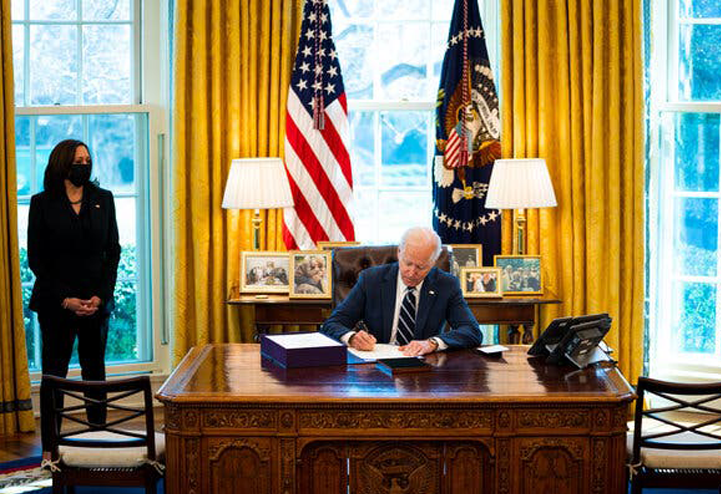
A document signed by President Joseph Biden in relation to Cuba shows the insistence of the U.S. administrations to present the Caribbean country as a danger, although they fall into omissions to make it fit.
By Roberto Morejón
A document signed by President Joseph Biden in relation to Cuba shows the insistence of the U.S. administrations to present the Caribbean country as a danger, although they fall into omissions to make it fit.
The President extended until 2024 the national emergency provision regarding the prevention of U.S. vessels from entering the largest of the Antilles.
The continuity of the measure, in force for more than two decades, is argued with the appeal to falsehoods and omissions, by pointing out that Havana has not shown willingness to refrain from what is described as excessive use of force against U.S. ships or aircraft.
The missive extended to Congress indicates that the unauthorized entry of U.S. registered vessels into Cuban territorial waters is detrimental to Washington's foreign policy in the face of what it calls "mass migration".
It is not said that the United States issued this ban after Cuba shot down two small planes that violated the archipelago's airspace, despite repeated warnings.
Cuba does not represent a danger to the United States, neither by principles nor by having military resources, quite the opposite of the power of the North.
The siege does constitute a disturbance of international relations due to its extraterritorial character, as pointed out in the UN General Assembly.
As for the threat of what the tenants of the White House are presenting as a possible "mass migration", it is appropriate to recall the impact of the Northern boycott and the inclusion of Cuba in the list of countries alleged to be sponsors of terrorism.
With these and other tools, the United States aggravated the problems of Cuba, a poor country, exposed to pandemics, hurricanes, fatal accidents and the international crisis, with galloping inflation.
But the White House tries to blur the harmful impact of its restrictions and ignores the pronouncements of world personalities.
The Mexican President, Andrés Manuel López Obrador, and a summit meeting of CELAC, the Community of Latin American and Caribbean States, reiterated the demand to the United States to put an end to the blockade of Cuba.
Vijay Prashad, director of the Tricontinental Institute for Social Research, and Noam Chomsky, linguist, philosopher and political activist, spoke along these lines.
The tactic of associating attacks and punitive actions with crusades to show Cuba as a threat is usually unsuccessful because it is worn out and misleading.

